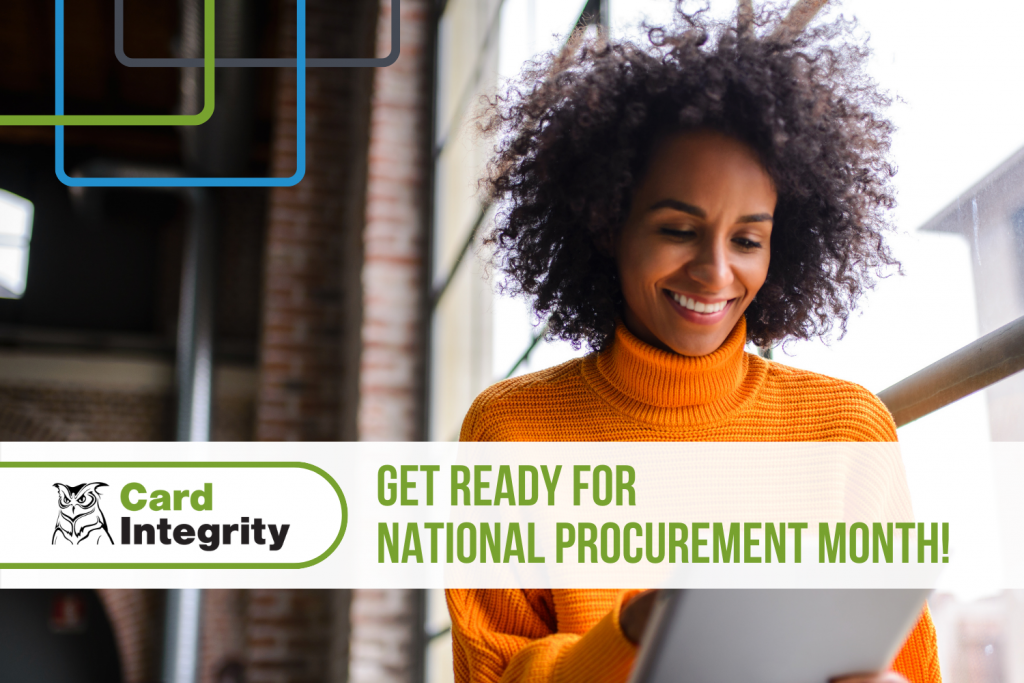Cardholder training is one of many internal controls that organizations can use to bolster their protection against fraud, misuse, and abuse on company issued credit cards like P-Cards and travel cards. What sets it apart from other internal controls is that cardholder training is designed to stop fraud and misuse before they ever happen. Other internal controls are there to find and mitigate damage that has already been done. Whereas cardholder training stops it before it starts.
It’s not as easy as it looks
The biggest barrier to entry for implementing a cardholder training program is simple: resource constraints. Card managers simply have other priorities to keep the program running. They often can’t easily allocate the time and budget necessary to get a training program off the ground. Think about everything that is involved.
- You need to define the scope. Online training? Onsite training? How much money can you afford to allocate to this? Who on the team is going to work on it?
- What kind of training courses are you looking to create? General knowledge? Remedial (quizzes to take if someone messes up)? Role-specific?
- What is the training course going to look like? What will be covered? You may be tempted to just copy the organizational policy into some online quizzes. That’s unlikely to stick. Your card policy is likely thorough, and well-written, and does its job well. But it’s not designed as a training document.
- How is the training going to look, and if online, on what website will it be housed? It needs to be account-based and password protected to track progress of individual cardholders. Will you create your own website? Who is going to do that?
- How are you going to track progress?
As you can see, it’s a lot of work. And for many organizations, it is out of the scope of the procurement or travel card admin team. They just don’t have the resources available to dedicate to this sort of work. And so, the “cardholder training program” looks more like a link to the internal card policy than anything else.
There’s an easy, affordable solution
The obvious answer is to outsource. But “out-of-the-box” solutions may not fit your needs, because you need something that can be customized to your specific policy. That’s where Card Integrity comes in. We’ve been delivering fully customized training courses to clients as part of a larger suite of services for over 15 years. Our TrainingWISE service is specifically designed to combat common resource constraints that prevent organizations from implementing robust training courses for their cardholders.
Card Integrity customized training courses are built from the ground up and include features like:
- Meetings with our staff to understand the scope of your project and kickoff the service
- Customizing the look and feel of the courses to your branding guidelines, including colors, logos, and fonts
- Interactive training modules
- Reporting on training status of employees
- Refresher courses, remedial courses, general training courses
- Adult learning principles incorporated. This PDF published by the CDC describes adult learning principles in detail.
We’re happy to show features and benefits of these courses with a free demo of a sample course. Simply check the box for “TrainingWISE – Online Card Policy Training” in your response.
Join our live webinar about combating fraud and misuse with cardholder training
Card Integrity is hosting a live webinar, Fraud and Misuse Scenarios Card Managers Should Include in Cardholder Training, on October 29th, 2025 at 11am CST. Even if you can’t make the live event, a recording will be made available after the fact and sent to you if you sign up.
Title: Fraud and Misuse Scenarios Card Managers Should Include in Cardholder Training
Date: October 29th, 2025
Time: 11am Central Standard Time (US)
We’ll be covering different fraud and misuse scenarios that we’ve seen crop up in our time monitoring expenses for organizations at Card Integrity. Real-world examples and scenarios help make training material more relatable to your cardholders, and better prepare them for situations that may prop up as they travel or fulfill procurement duties. We hope to see you there!




